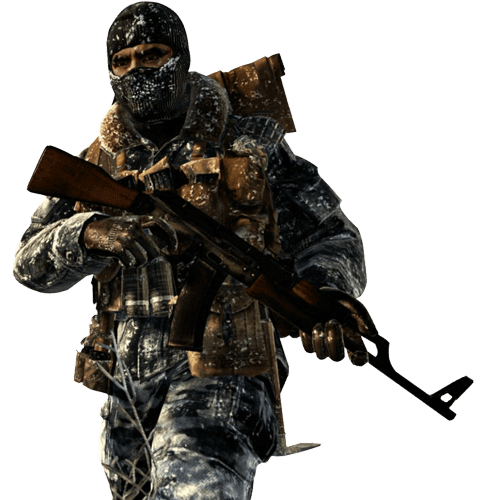Read this in the paper today thought i'd share with you guys. (i realized last time when i just posted a link that if you aren't subscribed to the wsj you can't see the full article so i copy and pasted)
this is obviously relevant to us because as gamers there is a lot of shit-talking. i think it's interesting that they compared the feeling of self-confidence to being impaired by alcohol and that we don't feel bad being as mean because we can't physically see the person's reaction. i know i've talked a lot of crap online lol and i'm very nice and polite in person.
thoughts DM?
Source: http://online.wsj.com/article/SB100...1784405148.html?mod=WSJ_LifeStyle_LeadStoryNAJennifer Bristol recently lost one of her oldest friends—thanks to a Facebook fight about pit bulls.
The trouble started when she posted a newspaper article asserting that pit bulls were the most dangerous type of dog in New York City last year. "Please share thoughts… 833 incidents with pitties," wrote Ms. Bristol, a 40-year-old publicist and animal-welfare advocate in Manhattan.
Her friends, many of whom also work in the animal-welfare world, quickly weighed in. One noted that "pit bull" isn't a single official breed; another said "irresponsible ownership" is often involved when dogs turn violent. Black Labs may actually bite more, someone else offered.
Then a childhood pal of Ms. Bristol piped up with this: "Take it from an ER doctor… In 15 years of doing this I have yet to see a golden retriever bite that had to go to the operating room or killed its target."
That unleashed a torrent. One person demanded to see the doctor's "scientific research." Another accused him of not bothering to confirm whether his patients were actually bitten by pit bulls. Someone else suggested he should "venture out of the ER" to see what was really going on.
"It was ridiculous," says Ms. Bristol, who stayed out of the fight. Her old buddy, the ER doctor, unfriended her the next morning. That was eight months ago. She hasn't heard from him since.
Why are we so nasty to each other online? Whether on Facebook, Twitter, message boards or websites, we say things to each other that we would never say face to face. Shouldn't we know better by now?
Anonymity is a powerful force. Hiding behind a fake screen name makes us feel invincible, as well as invisible. Never mind that, on many websites, we're not as anonymous as we think—and we're not anonymous at all on Facebook. Even when we reveal our real identities, we still misbehave.
According to soon-to-be-published research from professors at Columbia University and the University of Pittsburgh, browsing Facebook lowers our self control. The effect is most pronounced with people whose Facebook networks were made up of close friends, the researchers say.
Most of us present an enhanced image of ourselves on Facebook. This positive image—and the encouragement we get, in the form of "likes"—boosts our self-esteem. And when we have an inflated sense of self, we tend to exhibit poor self-control.
"Think of it as a licensing effect: You feel good about yourself so you feel a sense of entitlement," says Keith Wilcox, assistant professor of marketing at Columbia Business School and co-author of the study. "And you want to protect that enhanced view, which might be why people are lashing out so strongly at others who don't share their opinions." These types of behavior—poor self control, inflated sense of self—"are often displayed by people impaired by alcohol," he adds.
The researchers conducted a series of five studies. In one, they asked 541 Facebook users how much time they spent on the site and how many close friends they had in their Facebook networks. They also asked about their offline lives, including questions about their debt and credit-card usage, their weight and eating habits and how much time they spent socializing in person each week.
People who spent more time online and who had a high percentage of close ties in their network were more likely to engage in binge eating and to have a greater body mass index, as well as to have more credit-card debt and a lower credit score, the research found. Another study found that people who browsed Facebook for five minutes and had strong network ties were more likely to choose a chocolate-chip cookie than a granola bar as a snack.
In a third study, the professors gave participants a set of anagrams that were impossible to solve, as well as timed IQ tests, then measured how long it took them to give up trying to solve the problems. They found people who spent more time on Facebook were more likely to give up on difficult tasks more quickly. A Facebook spokesman declined to comment.
Why are we often so aggressive online? Consider this recent post to this column's Facebook page, from someone I don't know: "Why should I even bother writing you? You won't respond."
We're less inhibited online because we don't have to see the reaction of the person we're addressing, says Sherry Turkle, psychologist and Massachusetts Institute of Technology professor of the social studies of science and technology. Because it's harder to see and focus on what we have in common, we tend to dehumanize each other, she says.
Astoundingly, Dr. Turkle says, many people still forget that they're speaking out loud when they communicate online. Especially when posting from a smartphone, "you are publishing but you don't feel like you are," she says. "So what if you say 'I hate you' on this tiny little thing? It's like a toy. It doesn't feel consequential."
And for Facebook, its very name is part of the problem. "It promises us a face and a place where we are going to have friends," says Dr. Turkle, author of the book "Alone Together: Why We Expect More from Technology and Less from Each Other." "If you get something hurtful there, you're not prepared. You feel doubly affronted, so you strike back."
It's high season for online bickering about politics, as Chip Bolcik well knows. Mr. Bolcik, 54, a TV announcer and registered Independent from Thousand Oaks, Calif., likes to pose political questions on his Facebook page. "I am very interested in how people think who have different views than mine," he says. "And sometimes I will write a provocative question for the entertainment purpose of watching people yell at each other."
Over the past few months, Mr. Bolcik lost two real-life friends because of online political spats. The first friend got mad at him after he posted a status update asking people to debate whether Mormons are Christians. ("You are so off base you don't know what you are talking about," she wrote on his page, followed later by: "You're an idiot.") Mr. Bolcik blocked her from his page. "I will allow free discussion until you irritate me," he says. Sometimes, he erases entire conversation threads.
The second friendship ended even more abruptly, after one of Mr. Bolcik's old friends offended several of his Facebook friends, as well as Mr. Bolcik himself, by repeatedly posting his views. "He was spouting about politics, rather than discussing," Mr. Bolcik says. Mr. Bolcik wrote his friend and told him he was going to block him from the page if he didn't pipe down. In response, his friend told him off using vulgar language and unfriended him. "I was pretty upset," Mr. Bolcik says.
Still, he sometimes can't restrain himself from fanning the flames. When a political discussion thread becomes heated and he doesn't like the way it is going—"right or left," he says—he privately messages one of his "attack dog" friends and suggests he or she join the discussion. "I will say, 'Gee, this discussion doesn't seem right to me, what do you think?' " he says. "Then they will go on there and berate the person who is upsetting me, and I will look like the good guy."
this is obviously relevant to us because as gamers there is a lot of shit-talking. i think it's interesting that they compared the feeling of self-confidence to being impaired by alcohol and that we don't feel bad being as mean because we can't physically see the person's reaction. i know i've talked a lot of crap online lol and i'm very nice and polite in person.
thoughts DM?












